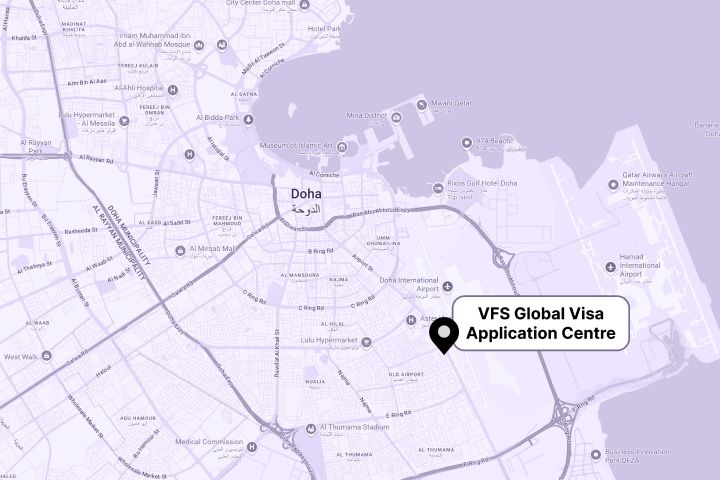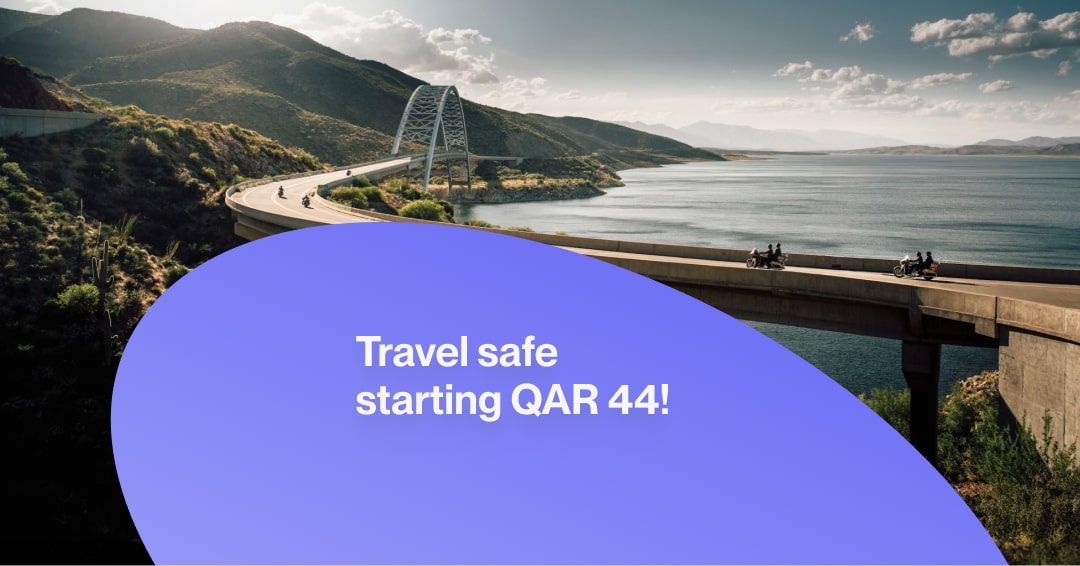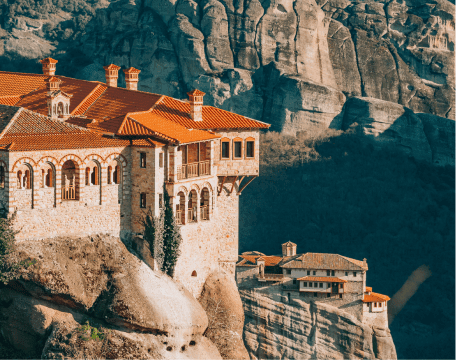Contents
Always dreamed of spending a year working from Portugal, snacking on pastel de nata while watching the Atlantic Ocean waves? A digital nomad visa might be a perfect option for you.
Introduced in 2022, the Portugal digital nomad visa enables remote workers to explore life in the country beyond the usual tourist experience, allowing them to maintain their working contracts or look for freelance opportunities outside of Portugal. If this is something you’re considering, here’s all you need to know about becoming a digital nomad in Portugal, including who is eligible, what documents you need, and how to apply.
What is Portugal digital nomad visa
Officially the D8 Visa, the Portugal digital nomad visa is a document that allows non-EU/EEA citizens to stay in Portugal while working for employers outside the country. It doesn’t matter if the digital nomad has a contract with a company or works as a freelancer — the D8 Visa makes no distinction, as long as the source of income is abroad.
There are two types of digital nomad visas in Portugal. The first one is the temporary stay visa, which is valid for up to one year. It allows multiple entries into the country.
The second type is the residence visa. It has a longer, step-like pathway, which starts with a four-month visa that allows two entries into the country. During this time, workers should apply for a two-year residence permit (around QAR 550), which can be renewed for three more years. So, the total time in the digital nomad status can reach five years. After five years on a residence permit, workers can apply for permanent residence or Portuguese citizenship.
Other types of Portugal visas
Let’s compare the digital nomad visa with other types to determine which one works best for your situation:
|
Type of visa |
Purpose |
Digital nomad visa |
|
Tourist Schengen visa |
For short tourist trips, up to 90 days within 180 days |
Allows remote work and longer stay, unlike a tourist visa, which prohibits work |
|
Work Visa (employer-sponsored) |
For employment within the country |
No need for a Portuguese employer or job offer; you work for a foreign company while living in Portugal |
|
Family reunification visa |
For joining family members |
Independent of family ties |
|
Study visa |
For students pursuing an education |
No uni enrollment needed, designed for working professionals |
|
Startup visa |
For innovative tech startups |
No need for a startup pitch, incubator approval, or innovation validation; more flexible for regular remote workers |
|
Golden visa |
For investors who make specific investments in the country (real estate or capital) |
No large investment required; a far more affordable entry route to residency |
|
D2 entrepreneur visa |
For entrepreneurs and self-employed individuals |
Easier application with fewer business creation requirements; no need to open a Portuguese company |
|
D7 passive income visa |
For retirees or passive income holders (including investors) |
Requires proof of employment and earnings, not passive income; more accessible for remote workers with active income |
|
Volunteer visa |
For unpaid voluntary work |
Provides legal income-based residence, unlike a volunteer visa, which doesn’t allow salaried work |
|
Internship/training visa |
For formal internships or training programs |
Doesn’t require a hosting institution or training provider in Portugal; more suitable for independent digital professionals |
Benefits of becoming digital nomad
There are many reasons why the Portuguese D8 visa is in demand. Firstly, it’s easy to apply for and get, as you don’t need to look for an employer or start your own business, just confirm that your income is sufficient and stable.
You'll also have the freedom to travel across Europe. Since Portugal is a part of the Schengen Area, its visa allows workers to travel to Schengen countries without a visa.
In addition, the digital nomad visa lets workers bring their partner, kids, and dependents with them; they’d not only get residence permits but also access to Portugal’s health and education systems.
Furthermore, the special Non-Habitual Resident (NHR) program allows “high added value” professionals to lower their tax rates. And last but not least, this visa opens the pathway to becoming an EU citizen or permanent resident.
Who is eligible
To apply for a Portugal digital nomad visa, you must be a non-EU/EEA citizen and at least 18 years old. You also have to show proof of remote work with income outside Portugal.
In addition, you must meet minimum monthly income requirements, which are four times the Portugal minimum wage, from employment or self-employment. In 2025, this amounts to 3,480 EUR (around QAR 14,600).
You also need to obtain private health insurance covering the entire stay in Portugal and have a clean criminal record.
It doesn’t matter if you apply for a temporary or residence digital nomad visa; eligibility requirements are identical.
Documents and fees
To apply for the Portugal digital nomad visa, you’ll need to prepare the following documents:
|
Document |
Requirements |
|
Application form |
Available on VFS |
|
Passport(s) |
Valid for at least 6 months after the date of arrival in Portugal |
|
Two photos for each applicant |
Passport-sized (4,5 x 3,5 mm) |
|
Proof of professional status |
Proof of professional status as a remote employed worker (contract) or freelancer (agreement with clients) |
|
Proof of income |
Bank statement proving six months of earnings matching the minimum income requirements |
|
Proof of funds |
Bank statement with at least EUR 10,440 (around QAR 43,820) on balance |
|
Proof of living situation |
If the applicant is of a nationality other than that of the country they are applying from, valid for longer than the date of expiry of the visa they are applying for |
|
Proof of clean criminal record |
Certificates from the county of citizenship(s) and countries where the applicant stayed longer than 6 months, with an apostille (may also require Portuguese translation) |
|
Authorization for criminal record enquiry by the Immigration and Border Services (SEF) |
Authorization form |
|
Health insurance certificate |
Or travel insurance for Schengen visa, covering the entire stay in Portugal, with a minimum of QAR 125,000 (30,000 EUR) coverage |
|
Proof of intention to enter the country |
Flight ticket reservation/itinerary |
|
Rental agreement |
For at least 12 months |
|
Letter of intention |
Explaining the worker’s motivation to move to Portugal |
The Embassy of Portugal may require additional documents.
The application fee for a D8 visa from Qatar is QAR 454 per person.
Application process
Here is the step-by-step process of applying for the Portugal digital nomad visa from Qatar:
-
Prepare the documents using the checklist above
-
Make an appointment at the VFS Global center in Doha, based on level 1 of the Al Nuami building, Oqba Ibn Nafie street, Airport road, 45. Open from Sunday to Thursday, 9 AM to 4 PM
-
Pay the fees
-
Visit the VFS center to submit your documents
-
Track the progress on the VFS website
-
Collect your passport at the VFS center, Sunday to Thursday from 4 PM to 5 PM

Processing of the application can take up to 90 days, though it’s typically shorter (around 60 days).
When you arrive: paying taxes
Paying taxes in Portugal is obligatory if you reside in the country for more than 183 days in the calendar year or have a home intended as a habitual residence. Tax residents must declare all global income.
Portugal has a progressive tax rate system. Personal income tax (IRS) ranges from 13% to 47.17%. Here’s the filling process:
-
Get a NIF (Número de Identificação Fiscal), required for all financial activity: You can obtain it through a tax office or a fiscal representative
-
Register as a tax resident: When in Portugal, register your address and status with the Portuguese Tax Authority
-
Apply for Non-Habitual Resident (NHR) within 6 months of becoming a resident via Portal das Finanças: It’s optional, but offers tax benefits (e.g., 20% flat rate for specific professions, foreign income exemptions) for 10 years
-
Track your income: Keep invoices and records of all income sources, both local and international
-
Submit an annual tax return between April 1 and June 30 for the previous calendar year
-
Pay taxes: Based on assessed liability, payments are usually due in August.
For international income complexities, it’s worth consulting a local accountant. Double taxation agreements may reduce your overall tax burden.
Applying with family
A great perk of digital nomad visas is that you can apply with your family. The conditions you need to fulfill are:
-
Have proof of the relationship
-
Have enough income to support them
If you’re applying with your spouse, the minimum monthly income is 50% higher than for individuals, so your earnings have to be 1,740 EUR (around QAR 7,305) higher. For children, you’d need an additional 30% in earnings, which is 1,044 EUR (around QAR 4,390) for 2025.
To apply for a Portuguese digital nomad visa with your family, you first need to submit your application. Then, apply for family reunification (spouse, children, or dependents) through AIMA, the Portuguese migration agency.
Include marriage and/or birth certificates, proof of relationship, and proof of financial means. Applications can be submitted together at the Portuguese consulate or separately after your visa is approved. Family members will receive residence permits linked to yours, allowing them to live in Portugal.
Getting Portuguese citizenship
The Portugal digital nomad visa can be the first step to obtaining Portugal citizenship or permanent residency in the country.
After five consecutive years of living in Portugal with no long absences (no more than a total of eight months in five years), you would be able to apply for citizenship. You’d need to prove that you’ve integrated into Portuguese society, kept a clean criminal record, and learned Portuguese at a basic proficient level (A2).
FAQ
Is Portugal a good place for digital nomads?
Can I work as digital nomad in Portugal?
What is the minimum income for digital nomad visa in Portugal?
Do digital nomads pay tax in Portugal?
Does a Portugal digital nomad visa lead to citizenship?








